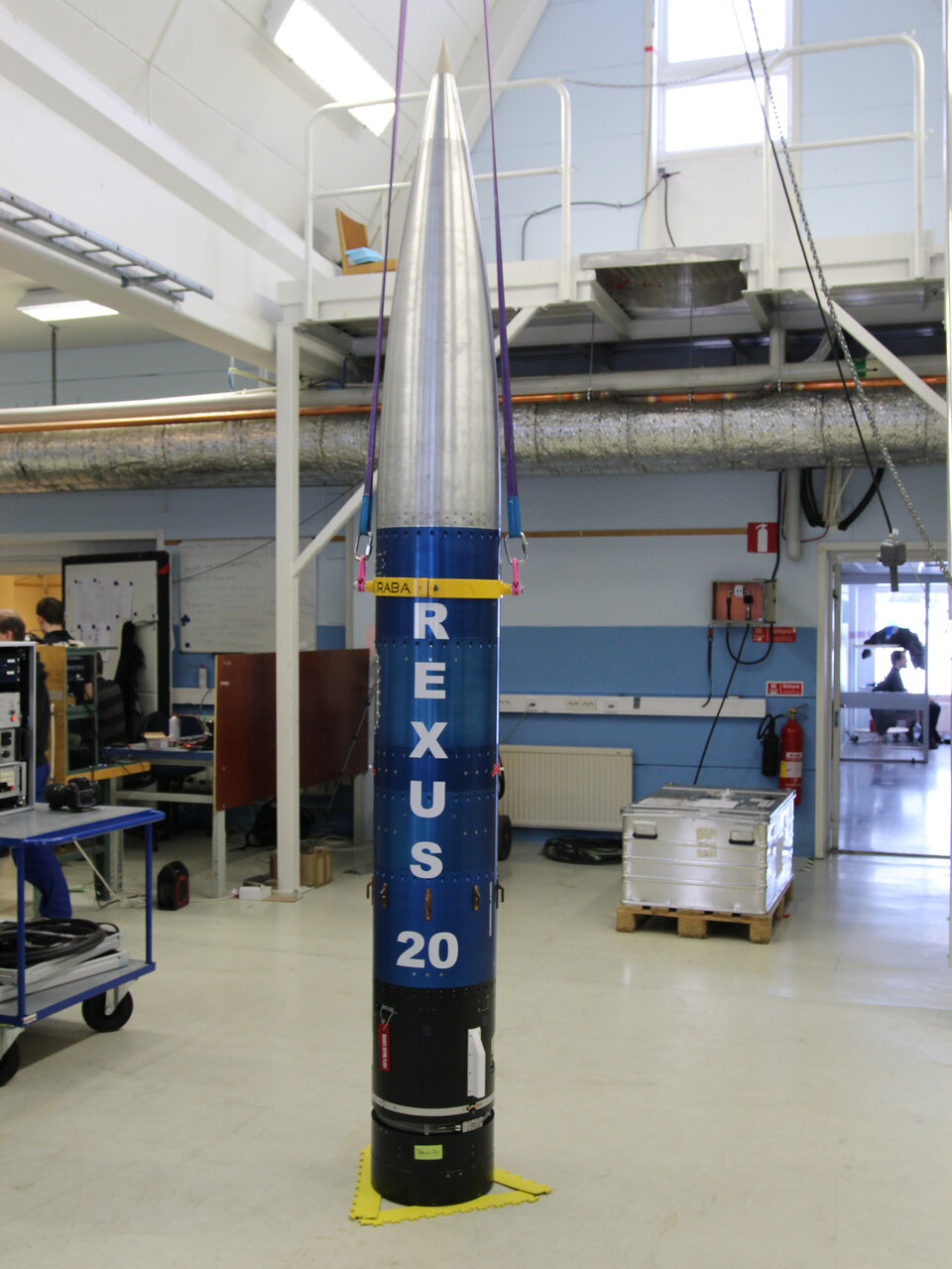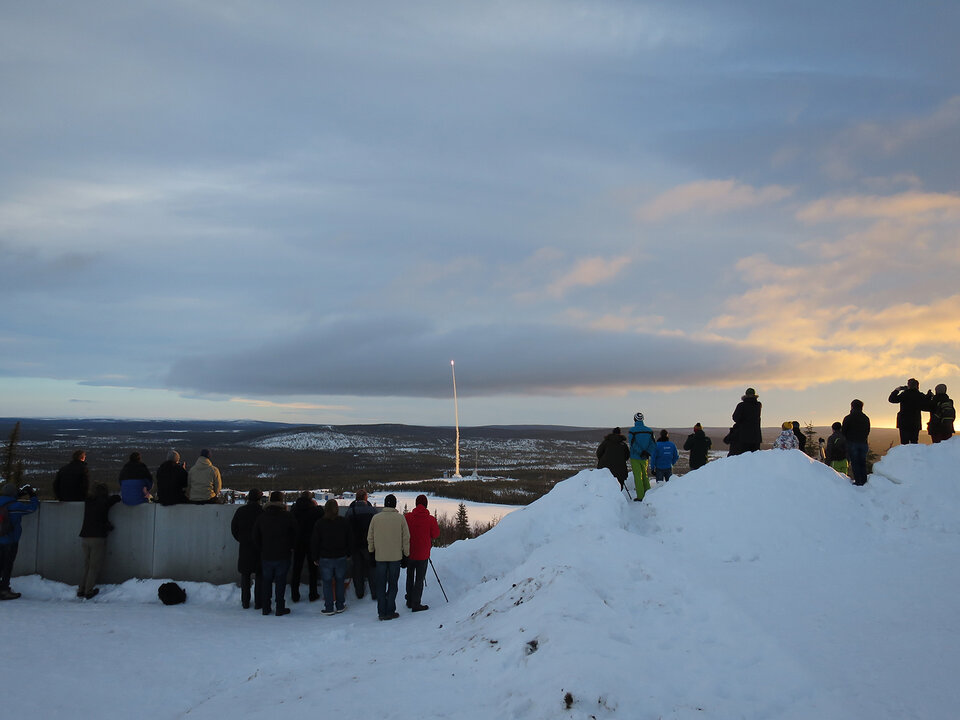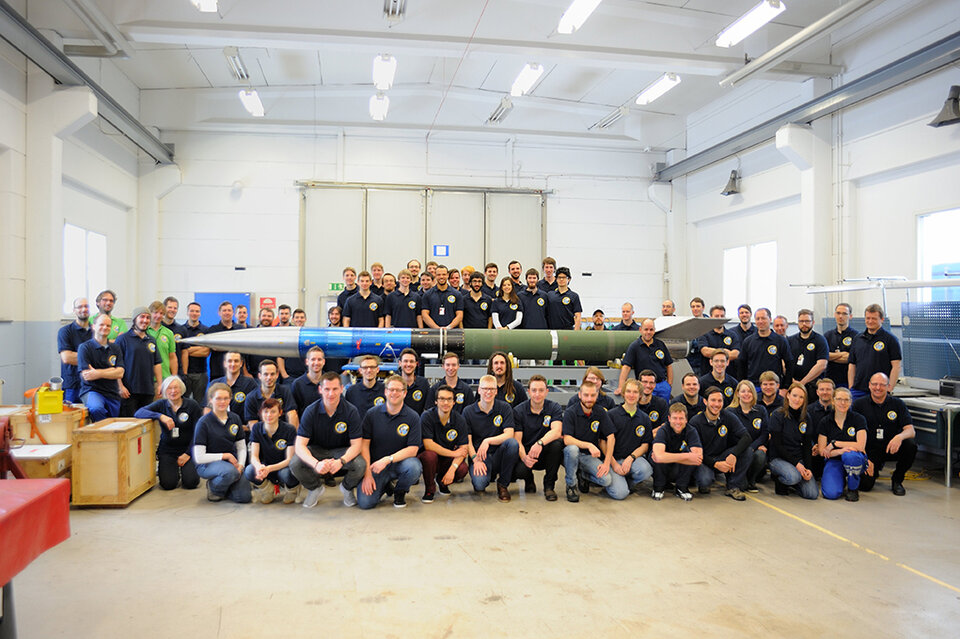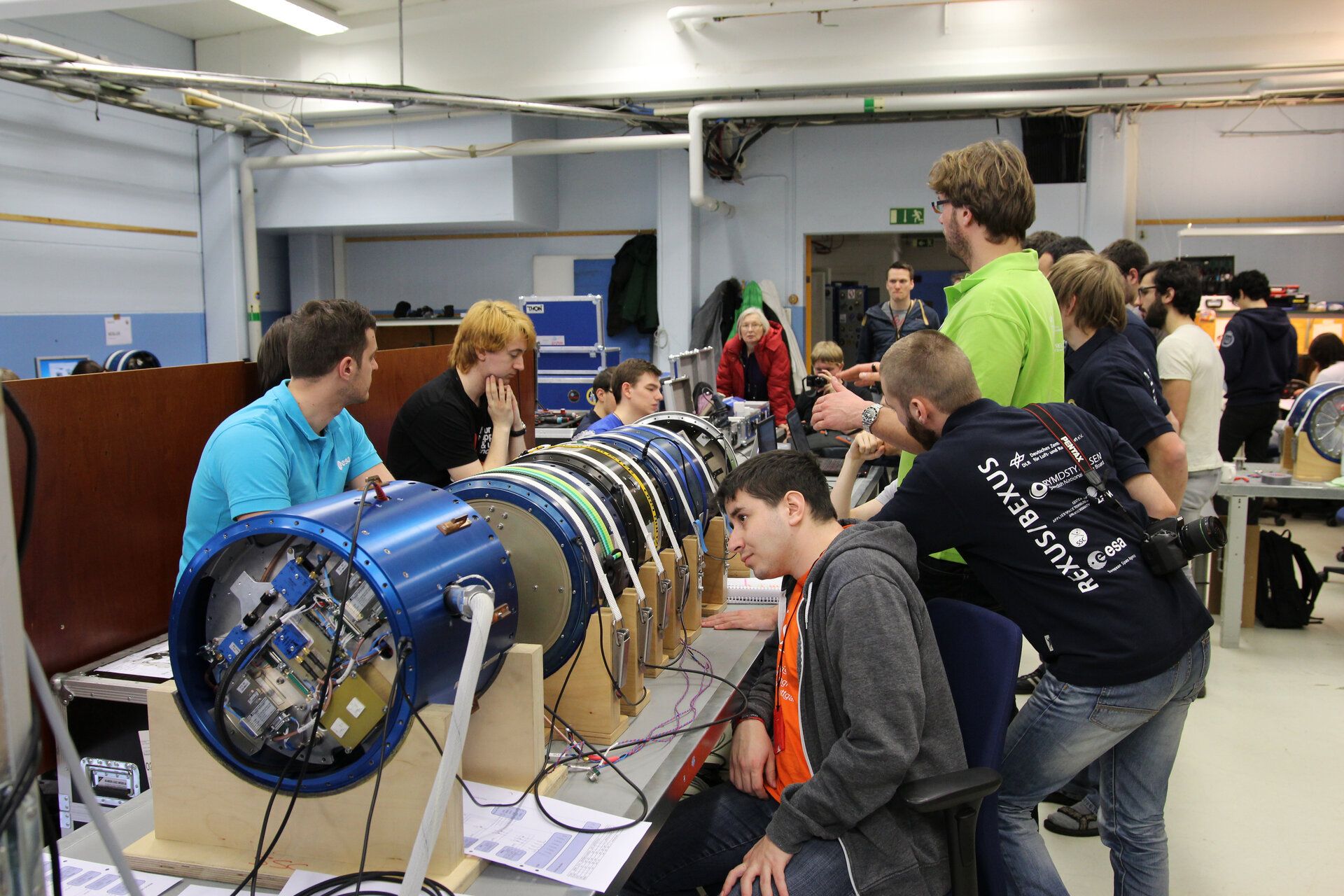Successful flights for student experiments
Watching a rocket launch can be an inspiration for anyone, but doubly so if you are a student contemplating a career in the space industry and the rocket in question is carrying your experiment to the top of Earth’s atmosphere.
This March, eight student teams from across Europe got to see their experiments blasted to the edge of space. Each flight may have only lasted 15 minutes but the positive benefits will reverberate for years.
Not only will the results help the students achieve their University qualifications but by participating in the programme, they have also gained invaluable experience about what it takes to work on a real space project.
Two 6-metre-long sounding rockets carried the experiments into space from the SSC’s Esrange Space Centre in Kiruna, Sweden. The experiments covered an impressive range of science and technology.

Boiling management by means of ultrasounds (BOILUS) from Barcelona Tech, Spain, studied the interaction between a boiling liquid and ultrasound to help the development of systems to control boiling in microgravity environments.
Cellular Effects on Microgravity Induced Oocyte Samples (CEMIOS) from Lucerne University of Applied Sciences and Arts and University of Bern, Switzerland, investigated how living cells detect gravity.
The Prototype Inflatable Conical Antenna – REXUS Deployment (PICARD) from University of Strathclyde and University of Birmingham demonstrated a way to inflate an antenna in a miligravity environment.
System of free-falling units using LEDs to allow one to track the other (SLED) from KTH Stockholm, Sweden, deployed two FFUs (Free Falling Units). Both were equipped with LEDs and cameras so that one FFU could track the other without the need for a communication link between them.
These experiments were chosen in December 2014 by the Swedish National Space Board (SNSB) and ESA from proposals made by university teams across Europe. Four other experiments were chosen by the German Aerospace Centre (DLR).

The opportunity comes about through the REXUS/BEXUS (Rocket/Balloon Experiments for University Students) Programme. The experiments for REXUS 21 & 22 have already been chosen and the teams are working on their apparatus now, ready for next year.
Upon selection, the experiment teams begin working to the rigid schedule of tests and reviews. These mirror the milestones of a professional space project and ensure that no corners are cut, guaranteeing the best chances of success for a mission.
The teams then travelled to Sweden with their apparatus for the launch campaign. Starting on 7th March, they spent a week preparing, testing the experiments and the rocket. The launches took place in the second week.
While REXUS 20 lifted off on the first attempt at 15 March, there was some frustration for those teams waiting on REXUS 19. High winds meant that the launch attempt scheduled for the morning of 17 March was abandoned. Conditions only improved in the early hours of the next morning. So, the teams reassembled and finally sent their experiments on their way at 6:10am on 18 March.
Both flights reached around 78km in altitude. The experiments took place in conditions of microgravity as the rocket was falling back to Earth. Following the helicopter retrieval of the payload modules, preliminary analyses showed that all experiments had functioned and collected data.

As with any space mission, the campaign ended with a post flight meeting where the rocket flights were evaluated and the student teams presented their preliminary results. Then there was a party. Not a bad way to spend the last two weeks of winter.
For students dreaming of flying their own experiments to the edge of space, a new call for REXUS/BEXUS 2018 will open in the summer with a submission deadline in October.
Notes for editors:
For more information click here.
The REXUS/BEXUS programme is realised under a bilateral Agency Agreement between the German Aerospace Center (DLR) and the Swedish National Space Board (SNSB). The Swedish share of the payload has been made available to students from other European countries through a collaboration with the European Space Agency (ESA).
EuroLaunch, a cooperation between the Esrange Space Center of SSC and the Mobile Rocket Base (MORABA) of DLR, is responsible for the campaign management and operations of the launch vehicles. Experts from DLR, SSC, ZARM and ESA provide technical support to the student teams throughout the project.




